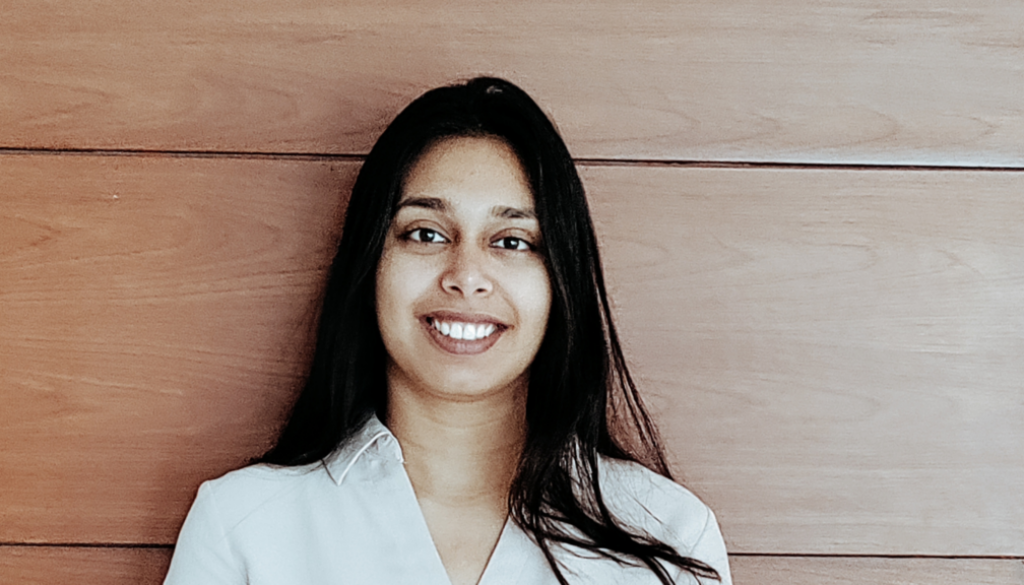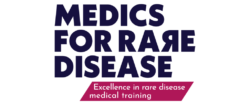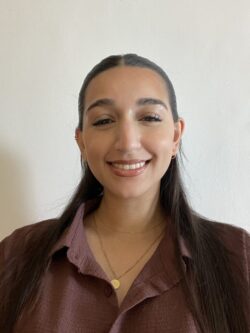My journey applying for the Student Voice Prize by Diya Porwal
We healthcare practitioners are privileged. Patients trust us with their stories, creating the space for us to participate in them. In my experience as a genetic counselling student, this is even more so with rare diseases, where often the diagnosis becomes a focal point in the patient’s story. With this mindset, I decided to apply to the Student Voice Student Competition, excited to engage more deeply with individual stories and hoping the learning would carry over to my professional practice.
Step One – The Interview
The first step for me was to review the three essay topics and reflect on them through the lens of my own experience. They were thought-provoking and challenging, presenting new avenues for me to consider my encounters with rare disease patients and my role in supporting them. Curious to understand whether my perceptions of rare diseases applied universally, I signed up for the patient pairing scheme. I was fortunate to be paired with an insightful, wonderful woman from the BEAT SCAD organisation. Amidst a 9-hour time difference, we emailed resources and stories back and forth. Our scheduled one-hour interview quickly turned to three hours as we became familiar with each other lives and work. Her vulnerability, tenacity and bravery inspired me as I was reminded of the many battles rare disease patients must fight. This conversation was undoubtedly the most rewarding part of the experience for me. I got to look outside my specialist genetic nook and take in all the different social and medical systems that entwine in a patient’s healthcare. We discussed everything from holistic care, mental health, the gender gap in healthcare, country-specific medical systems, and advocacy to the role of artificial intelligence in medicine. I got to know her after such a rich discussion of personal and professional experiences and opinions. I wanted to tell her story and to tell it well.
Step Two – The Writing
The writing was the daunting part. Even after years of practice, I struggle with my formal writing skills, and we had covered so much that I had no idea where to begin. After much internal debate, I selected my topic, thinking about which one would best scaffold the story I wanted to tell. A literature search helped me frame my thoughts around the story.
My writing process was iterative; a lot of writing and rewriting went into my essay. I shared my story with several friends and family members in medical and non-medical fields, wanting to confirm the relevance and ease of comprehension to both audiences. Their feedback was instrumental in helping me identify additional areas of significance and see complexities and jargon in the essay. Writing tools like Grammarly were a huge help. Ultimately, I felt like I had done my interviewees’ story justice and submitted an essay that I felt genuinely proud of.
Step 3- The Results
Winning the Student Voice Prize in the English as a Second Language subcategory was the cherry on top of a fantastic journey! I submitted the essay without any expectations of winning; I had only hoped to tell my interviewee’s story well. I am thrilled and grateful to The Student Voice Competition for its international reach and inclusivity. In my experience working in healthcare in India, Singapore, and Australia, I have seen huge country-wide differences in the attitudes and provisions for rare disease patients. Saying that, the lived experience of rare disease patients is remarkably similar, and we healthcare practitioners can learn a lot from sharing our knowledge and experiences. Winning in this subcategory showed me that despite my limitations, I have a lot to offer, and the same goes for all international applicants to this competition.
Dear future applicants
To all future applicants, my advice to you is to engage deeply with your story and the writing. As the name implies, it can be rare to meet a patient with a specific rare disease and through this experience, you can learn a lot about their experiences and challenges. Take advantage of this opportunity to do so. Simultaneously, it may help to remember that while the disease may be rare, the experience of rare disease patients is similar in many ways. My main learning is that it is essential to look at the patient and the disease in the context of their holistic lives. For anyone struggling with writing like me, trust in your skills. Experiment with the various resources and writing tools available and find one that supports your specific needs. Finally, good luck! I have loved engaging with the stories and essay writing through this competition and I hope the same for you.
You can read Diya’s winning essay here




